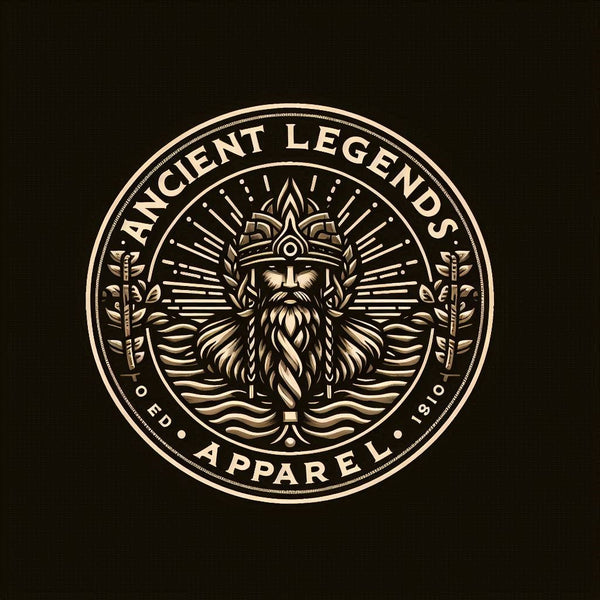Guardians and Protectors in Greek Mythology
Karl FShare
INTRODUCTION
Our shared fascination with mythology is born from a yearning to decipher the mysteries of existence, human nature, and the cosmos. Myths are the legacy of human curiosity, encoded into characters and tales that move across lands and epochs, transcending temporal boundaries. Among the bellicose drama of Greek mythology, epic tales of heroism, and the celestial soap opera of gods are staggering figures known as guardians and protectors. These beings are crucial in safeguarding not just physical spheres but also ideological and metaphorical realms. This article shall delve into the intriguing legacy of these mystical defenders, weaving tales about their origins and roles, and encapsulating their enduring relevance in contemporary culture.
ORIGIN AND CULTURAL CONTEXT
The chronicles of Greek mythology recount an intricate hierarchy of gods, semi-gods, mortals, creatures, and other cosmic entities. Guardians and protectors held an eminent rank, imbued with formidable abilities to shield sacred territories, divine entities, and precious artifacts from harm. Their mythology is steeped in the societal, religious, and philosophical landscape of ancient Greece, painting a vibrant melange of faith, folklore, and fantastical imagery.
Guardians like Cerberus, the three-headed dog, protected the gateway to the Underworld, permitting entry to spirits of the dead but adamantly refusing their exit. Similarly, the monstrous Chimera, a fire-breathing hybrid of a lion, goat, and serpent, personified the indestructibility of legends. The gargantuan Atlas was charged with the eternal punishment of holding up the heavens. The valiant Heracles, a demigod and a hero, was deemed the protector of humanity against evil forces.
THE LEGEND OR STORY
The narratives about these guardians are as diverse as the figures themselves. Cerberus's tale in Greek mythology highlights the brevity of life and inevitability of death. Simultaneously, his story provokes a dissection of morality, suggesting that his fierce disposition mirrors the human inclination to guard against the reckoning of own failures and mortality.
Chimera's legend exemplifies the idea of symbolic guardianship, as she was a monstrous harbinger of disaster. As per mythological chronicles, Chimera was born of Typhon, the deadliest monster, and its deed of threatening communities served as a deterrent against human transgressions.
Atlas’s punishment of shouldering the sky reflects an enduring moral about divine accountability and acts as a cautionary tale for those who dare to rebel against divine order.
Similarly, Heracles's role as a defender of humanity affirms the Greek culture's reverence for heroism. His twelve labors, which included defeating various monstrous adversaries, encapsulated both the glory attainable through bravery and the redemption possible through service.
INTERPRETATIONS AND SYMBOLISM
Symbolically, guardians and protectors in Greek mythology represent profound metaphysical concepts and illuminate the human condition's inherent dualities. Cerberus manifests the human fear of death, accentuating its inevitability and amplifying the dichotomy between mortality and eternity.
Chimera symbolizes the deadly potency of nature and the existential menace of chaos. The figure embodies the human disposition to anthropomorphize natural disasters and render them as mythical creatures, weaving a tangible narrative around abstract phenomena.
Atlas’s punishment represents the unbearable weight of guilt, obligation, and regret. His tale offers an allegory about adversaries and repercussions, depicting the dangerous flirtation with hubris.
Heracles’s sacrifices for humanity embody the hero archetype, epitomizing bravery and resilience in face of challenges. His triumphs underline the belief in the potential of human endeavor, regardless of divine interference.
COMPARISONS IN OTHER CULTURES
Guardians and protectors are evident throughout various world mythologies. In Norse mythology, Heimdallr serves as the guardian of the gods and watchman of the heavens. The tale of the four mythical beasts in Chinese folklore parallels the protection of cardinal points concept seen in Greek mythology.
Modern interpretations of mythical guardians might look to Catholicism’s depiction of Archangel Michael, who serves a similar role as Heracles, defending humanity against evil.
MODERN REFERENCES AND POP CULTURE
The enduring legacy of guardians in Greek mythology persists in modern pop culture. J.K. Rowling's "Fluffy", a three-headed dog in the "Harry Potter" series, is clearly inspired by Cerberus. Meanwhile, video games like "God of War" include Heracles and Atlas, extending their reach to younger generations. Disney's animated film "Hercules" reinforces the heroic guardian archetype, while TV series such as "Percy Jackson & The Olympians" breathe fresh life into these age-old myths.
LEGACY AND LASTING MYSTERIES
The mythic guardians and protectors of Greek mythology continue to attract scholarly intrigue due to their profound symbolic implications and powerful narratives. Their stories invoke reflection on the fundamental truths of human existence and our relationship with the universe.
These guardians exist not just to emphasize the power of the divine but to reflect aspects of human nature - fear, courage, duty, and rebellion. As we continue to explore these tales and their legacy, we may continue to unearth new layers of wisdom, enriching our understanding of our ancient ancestors, ourselves, and the cosmos. Regarded as a mirror of human psyche, Greek mythology is a testament to the timeless appeal of stories and our eternal search for meaning.
This mythical lineage proves that though centuries may pass, our fascination with the mystical and unknown endures. The guardians and protectors of Greek Mythology are more than mere characters; they're the custodians of human imagination, curiosity, and our quest for understanding, reminding us that there are always more tales to be told, and more mysteries to unravel.
